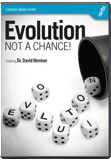
Wrinkled Fingers Get a Grip—but Not on Evolution
Most parents get asked by young children after a long soak in the tub, “Why do my fingers and toes get wrinkly in the water?” Until recently that remained a scientific mystery.
News Source
- Science: “Wrinkles Help Fingers Get a Grip”
Only in this millennium have scientists discovered that the nervous system directly causes the rippling in fingers and toes. The autonomic (involuntary) nervous system triggers vasoconstriction in the deeper parts of the skin, shrinking it and leaving the greater surface area above it to wrinkle.

Wrinkled fingertips enhance underwater manual dexterity, according to a recent study published in Biology Letters. Though intuitively these wrinkles may function like tire treads to increase traction, exactly how they do that is still unknown. They may channel water away from the skin’s interface with wet objects to prevent “hydroplaning,” they may enhance removal of slick skin oils, or they may increase friction by increasing the contact surface area. Elucidating the mechanism will require further study. Image by iStockphoto/Thinkstock, via Science.1
Having discovered this interesting feature of our design, scientists naturally wonder about the wrinkles’ function. In 2011 a group proposed the “rain-tread hypothesis”: the idea that wrinkles serve like tire treads to increase traction.
“That seemed like a clever hypothesis that would be easy to test,” according to Tom Smulders, a Newcastle University evolutionary biologist. Though precisely how they do so still remains a mystery, wrinkles now have a proven functional value. Smulders’s study published in Biology Letters describes how test subjects were timed as they manipulated 45 submerged objects. After soaking their fingers for a half hour, the volunteers were able to complete the exercise 12% faster than they could with smooth, unsoaked fingers. Repeat tests with wrinkly soaked fingers and dry objects, in contrast, revealed no wrinkle-enhanced performance.
After soaking their fingers for a half hour, the volunteers were able to complete the exercise 12% faster than they could with smooth, unsoaked fingers.
Since wrinkles also didn’t hurt performance with dry objects, why aren’t our fingers always wrinkled? Smulders suggests, “With wrinkles, less of your skin surface touches the object, so there may be issues of sensitivity.”2 However, if this is the case, there is apparently no detrimental effect on dexterity. The possible effect of fingertip wrinkles on sensation was not examined in the study.
“They show that the wrinkles have a biological function,” according to Columbia University biomechanical engineer Xi Chen, who previously analyzed the way the shrinkage of the deeper skin tissues causes the surface skin to wrinkle. And Rensselaer Polytechnic’s Romann Weber, who helped develop the rain-tread hypothesis, agrees that Smulders’ tests “are a good practical demonstration of the benefits that wrinkles provide.”
Though the effect of wrinkled toes on walking has not been tested, that would be another question to explore. The evolutionary search for a survival advantage to explain how this subtly designed feature developed will also entail exploring whether or not primate animals have similar wrinkles in their anatomy. The team writes, “It is unclear at present whether the wrinkling of wet glabrous skin evolved in our ancestors to support walking in wet conditions, manipulation of objects or both. Further experiments, combined with a comparative study to investigate which other species share this feature with humans, will provide deeper insights into how long ago it may have evolved, and for which primary function.”3
While wrinkly fingers to improve our underwater manual dexterity are a fine example of a good design, they do not provide support for the idea of evolution. Even if evolutionists could demonstrate that wrinkled fingers provide such a huge survival advantage that all ancestors without them died off, they still would have no way of actually observing and demonstrating how the genetic information to produce this feature came into being by random chance.
What those wrinkled fingers and toes in the tub should be doing is providing parents with an opportunity to say, “God designed your skin on your fingers to wrinkle that way so you could hold onto things underwater better. And scientists think wrinkled toes might help you to walk on the wet ground without slipping as easily.”
How exactly the wrinkles do that, by the way, is still up for grabs, and perhaps will be the subject of additional biomechanical studies.
Further Reading
- Get Answers: Design in Nature
For More Information: Get Answers
Remember, if you see a news story that might merit some attention, let us know about it! (Note: if the story originates from the Associated Press, FOX News, MSNBC, the New York Times, or another major national media outlet, we will most likely have already heard about it.) And thanks to all of our readers who have submitted great news tips to us. If you didn’t catch all the latest News to Know, why not take a look to see what you’ve missed?
(Please note that links will take you directly to the source. Answers in Genesis is not responsible for content on the websites to which we refer. For more information, please see our Privacy Policy.)
Footnotes
- Sid Perkins, “Wrinkles Help Fingers Get a Grip,” Science January 8, 2013, http://www.sciencemag.org/news/2013/01/wrinkles-help-fingers-get-grip.
- Helen Thomson, “Pruney Fingers Give Us Better Grip Underwater,” New Scientist, January 12, 2013, https://www.newscientist.com/article/dn23052-pruney-fingers-give-us-better-grip-underwater.
- Kyriacos Kareklas, Daniel Nettle, and Tom V. Smulders, “Water-induced Finger Wrinkles Improve Handling of Wet Objects,” Biology Letters January 9, 2013, doi:10.1098/rsbl.2012.0999.
Recommended Resources

Answers in Genesis is an apologetics ministry, dedicated to helping Christians defend their faith and proclaim the good news of Jesus Christ.
- Customer Service 800.778.3390
- © 2024 Answers in Genesis







